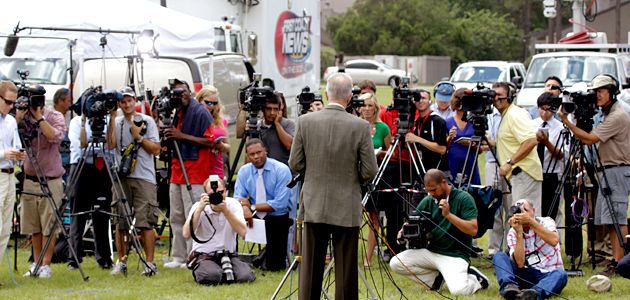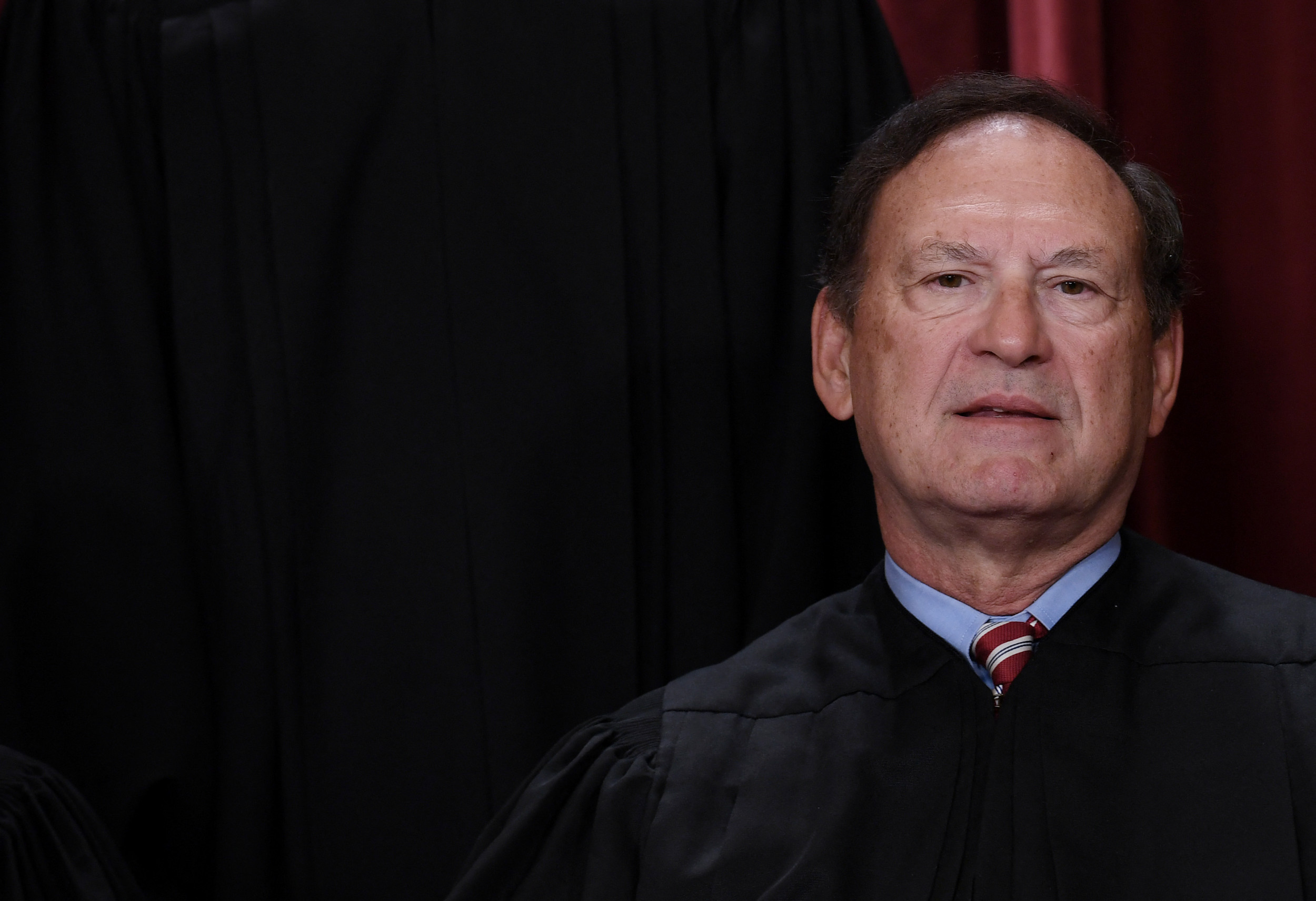
Hillary Clinton has called for the media not to cover a planned Quran burning by a tiny Florida church on Sept. 11 as "an act of patriotism." But can reporters and cameramen turn away from a story they have magnified into one of worldwide significance? And, with bloggers poised to broadcast the imagery anyway, would it make any difference?
Pastor Terry Jones of the paradoxically named Dove World Outreach Center, a mustachioed and apparently very prejudiced man with a history of bigoted sentiments (his book is called Islam Is of the Devil), has conducted bizarre anti-Muslim rituals before. But he has become what it seems he has always wanted to be: news.
With his plans to burn Qurans this Saturday, he has caused riots in Kabul and protests in Jakarta and the Phillippines. President Obama knows his name. Gen. David Petraeus, commander of U.S. troops in Afghanistan, fears him. We, the media, hang on his every word. We are, in fact, his fulcrum and lever.
Reporters and editors (myself included) lay the groundwork for him by tacitly promoting the current wave of Islamophobia seething across America. When the most extreme segment of the most extreme form of Islam dominates the news and depictions of Muslims in books, on TV, and in movies, it is perhaps not surprising that many assume that their twisted words speak for a peaceful, but silent, billion-strong Muslim diaspora.
As William Dalrymple pointed out in The New York Times, we have "a tendency to see the Islamic world," from harmless mystics like the Sufis who want to open a community center with a prayer room near Ground Zero, to twisted Wahhabi extremists like Osama bin Laden, "as a single, terrifying monolith."
Imagine if all Christians—from mild Protestants who go to church at Christmas to ardent evangelicals—were tarred worldwide with the imagery of the most extreme adherents. Actually, you don't have to. Because with our words and pictures, beamed across the world, we have now helped promote Terry Jones and his Christian fundamentalists as exemplars of faith in America. It is worth noting that, along with effigies of Jones, American flags were burned in Kabul, and plans are afoot to burn them in London, too.
There almost certainly will be more reporters and cameramen at the Quran burning than Quran burners. There is a real risk that pictures and video from the event, if it goes forward, will incite violence, even cause death. They probably will also be used, as Petraeus fears, as a recruiting tool for Al Qaeda and the Taliban.
It is broadly agreed that while we disapprove of what Jones wants to say, we will defend to the death his right to say it. But in a world where a cabal of a half-dozen editors no longer controls what is news, how should we report on Jones's actions?
The Associated Press has released its own guidelines. "Let's keep our coverage in proportion," wrote Tom Kent, a deputy managing editor in a press release today. "Although many are speculating on the effect the Quran burning could conceivably have, at the moment it's a proposal by a tiny group that may or may not even happen." Kent says the AP will run only one story per day if the burning goes ahead. And the wire service "will not distribute images or audio that specifically show Qurans being burned." NEWSWEEK will take similar common-sense measures.
News organizations often drop stories where there is a real risk to life or security in running them. But in this instance the damage may already have been done—perhaps that's why the AP is following a strategy of limitation. There are other arguments for continued coverage, too—the chicken-and-egg idea that we're just reporting what people want to know. And the very sound instinct that we should not pander to flag-burning extremists who threaten violence every time they see a news story, or even a cartoon, that displeases them. Meanwhile, bloggers, unconstrained by such journalistic responsibility, will almost certainly cover it anyway.
September 11, a day when thousands of Americans—Muslim and Christian— died at the hands of extremists, has now apparently been given over to the violent and the prejudiced. It is likely, in dispatches from Gainesville and elsewhere, that you'll be able to see them celebrating that victory in full color this Saturday.
News organizations often drop stories where there is a real risk to life or security in running them. But in this instance the damage may already have been done—perhaps that's why the AP is following a strategy of limitation. There are other arguments for continued coverage, too—the chicken-and-egg idea that we're just reporting what people want to know. And the very sound instinct that we should not pander to flag-burning extremists who threaten violence every time they see a news story, or even a cartoon, that displeases them. Meanwhile, bloggers, unconstrained by such journalistic responsibility, will almost certainly cover it anyway.
September 11, a day when thousands of Americans—Muslim and Christian— died at the hands of extremists, has now apparently been given over to the violent and the prejudiced. It is likely, in dispatches from Gainesville and elsewhere, that you'll be able to see them celebrating that victory in full color this Saturday.
Uncommon Knowledge
Newsweek is committed to challenging conventional wisdom and finding connections in the search for common ground.
Newsweek is committed to challenging conventional wisdom and finding connections in the search for common ground.





